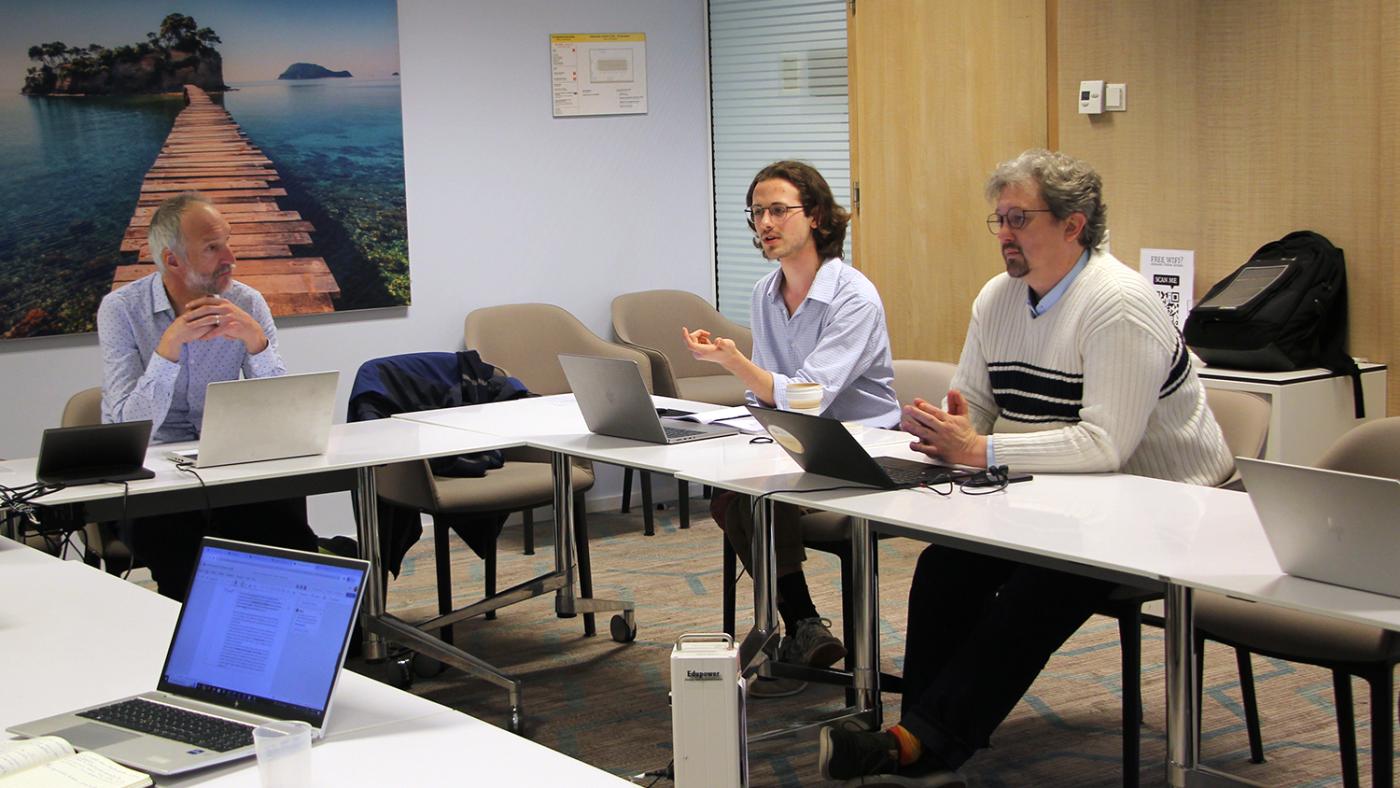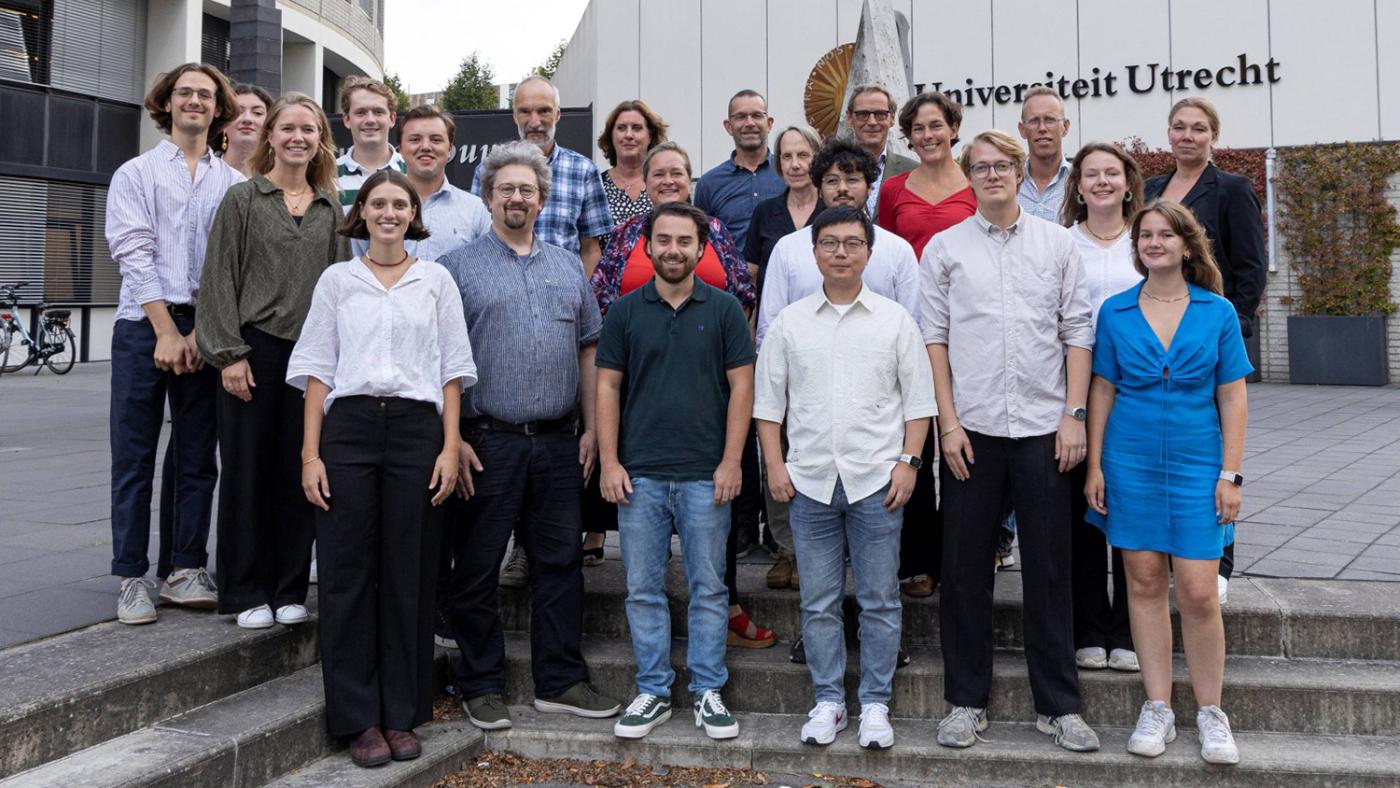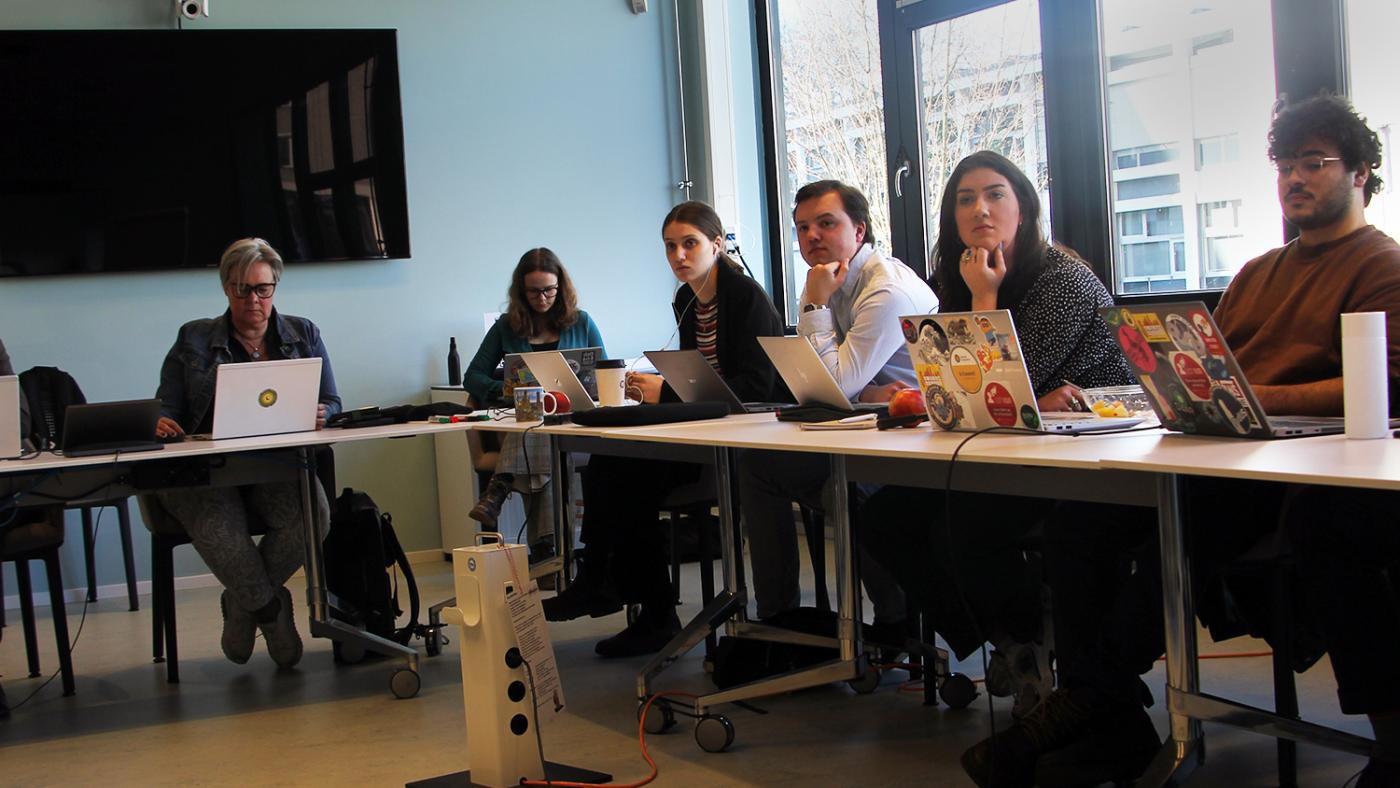How it is to be an international student in the University Council
Not exactly the representatives we were elected to be

For both of us, it felt special to be elected to the University Council. We would have the opportunity to represent the voices of international students while getting the chance to learn, make changes, and contribute to an important and prominent institution like Utrecht University. However, our position as international students in the university’s democratic system quickly became complicated. We were elected as equals, but what we did not realize at the time, was that we would never be equal representatives without speaking Dutch.
From the start, it was clear that our presence was a disruption. We would have to carve out a space for ourselves if we wanted to truly participate, but this came with an emotional price. The smallest moments wore us down the most. During our introduction to the Executive Board, it was discussed in Dutch, in front of us, whether they had to speak English to us. We were elected to represent, so it hurt to see our importance regarded as optional when compared to our Dutch-speaking friends and colleagues.
Meanwhile, the political climate on internationalisation was changing around us. Outgoing Education Minister Dijkgraaf introduced a letter signalling a serious departure from the international-friendly culture that the Netherlands had cultivated and attracted us in the first place. While the elections heated up, every player used internationals to their advantage. In an uncomfortable and surreal way, our participation became symbolic and a pawn in a larger political game. Now, while the “Internationalisation in Equilibrium” bill seeks to close the pathways that brought us here, we exist in a strange irony between being “valued” and being a problem.

Photo: Utrecht University
The limbo between being seen or unseen continued in formal settings. During our discussion with the Executive Board on internationalisation, we were assured warmly that we were valued and welcome, yet the brainstorming was held in Dutch. On the surface, our inability to be meaningful participants because of the language gap was solved by simultaneous written interpretation and Dutch courses. In reality, we felt hidden behind a computer screen, disconnected from the conversation, and reading an interpretation that was slow and incomplete. The Dutch courses, although enjoyable, would never allow us to participate in time. They were expensive tools that did not address our struggle at its roots. We may have seemed quiet in meetings because giving our contribution was so difficult that we had to rely on our colleagues to speak for us. We could not bridge the language gap to be the representatives we were elected to be.
While “Internationalisation in Equilibrium” evolved, we walked our own tightrope when asking for improvements. On one side, we needed to speak up about our difficulties, but doing this was too ungrateful and offensive to those who tried to include us. Given this is a Dutch university, asking to be included seemed like a selfish demand. As we walked the uncomfortable line between being grateful or demanding, our feelings of guilt grew larger and larger. We felt the pressure to settle for being less than a full representative. Despite that, we had our colleagues there to support us. As we empathized with each other, we refocused and saw the need to face our struggles and aim for long-lasting structural change. With frustration and hope as our fuels, we put ourselves into gear.

Teresa with ear butts during a committee meeting from het University Council Photo: DUB
As a student delegation, we are proud to be initiating this change. We have introduced simultaneous audio translation and reached new internal meeting agreements where effective participation is prioritized over rigid policies. Before, Dutch-speaking members were only allowed to speak Dutch, while internationals would intervene in English. Today, all those who feel comfortable speaking in English are encouraged to do so, while those who are not, are free to speak in Dutch. Small changes can mean big differences for English speakers: not only are we feeling more included, but also more effective.
However, our work is far from done. Lately, UU has sought to welcome internationals in representative bodies with Dutch courses offered at a C1 level, a level that is far above what most students can take advantage of. These types of policies are placebo. If we want to genuinely work together, we need a new understanding of what effective participation is and what our policies can realistically accomplish. With this in mind, we are determined to continue seeking change with the Executive Board.
If Utrecht University strives to have a healthy democracy, the 15 percent of students who are international need to be represented. Only by being represented, can they join the debate on what internationalisation really means. We are there to make sure that decisions that impact thousands of students and staff are given fair consideration. With the past to inform us, we are genuinely afraid that if no international representatives are part of the council in the coming year, our progress will be lost.
Utrecht University needs a medezeggenschap that is flexible and inclusive for all. At the end of this academic year, we will leave the University Council with the hope that our efforts will allow other internationals to feel involved, able to join, and especially welcome at our university.